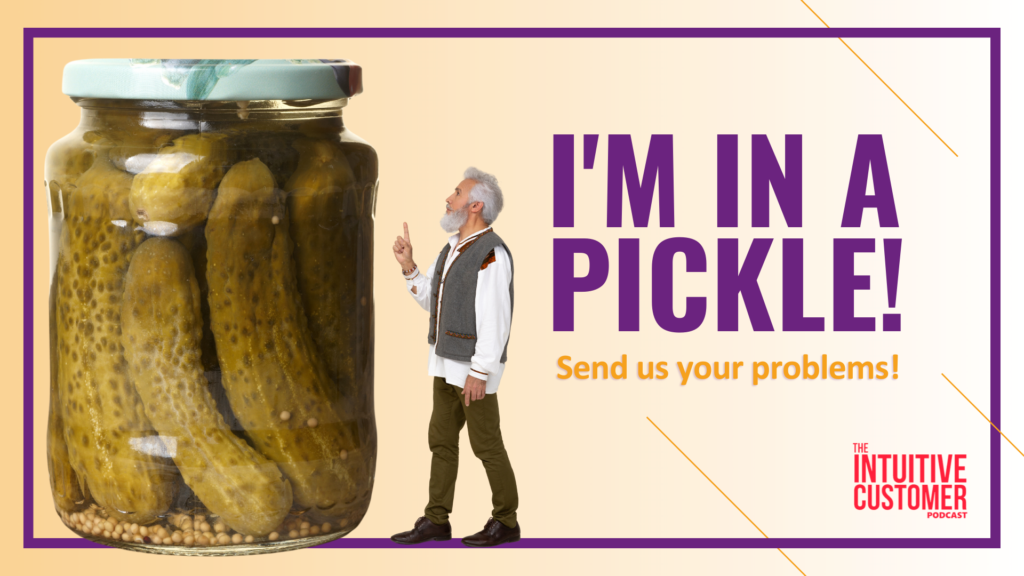My company had a significant birthday this year. Twenty years ago, in January 2002, I established my global Customer Experience consultancy, Beyond Philosophy. This year, the Financial Times recognized us as one of the best management consultancies for the fourth year in a row. I have learned a lot over these past two decades on how to ensure your business is booming, and I thought I would share them here with you.
This list comes when you might have heard of the Great Resignation. If you haven’t, the Great Resignation is a side effect of the pandemic that has people reassessing their lives. As a result, many people have decided to go into business for themselves. However, they do so in the face of some daunting statistics. For example, the US Bureau of Labor and Statistics published in 2016 that only 50 percent of businesses were still going in their 6th year. Even more chilling, 20 percent of companies fail in their first year. What’s more, those numbers were before the present economic uncertainty we face coming out of a global pandemic.
Be brave and do what makes you proud and what you enjoy. When you start your own business, you need to work hard. Yeah. If you don’t have the motivation to do it and you’re not enjoying it, there’s just no point because it’s not about the money. Also, research on happiness reveals that most people find joy when they focus on trying to do what is meaningful. So, in addition to enjoying what you do, it would be best to try working at something that gives you a sense of fulfillment.

Many years ago, I decided to be a conference speaker on Customer Experience. So, I went to a speaking agency and had a meeting, more like an interview. The bloke behind the desk asked me why I wanted to be a conference speaker.
I hesitated. I wasn’t sure what I should say. I was a nobody without a single follower on any platform. So, I decided to go with the truth, that I enjoyed doing it.
Lucky for me, he smiled and said, “Good. That’s precisely what it takes to be successful in this. You work harder because you enjoy it.
My podcast is born out of a similar enjoyment experience. After my co-author and I wrote The Intuitive Customer, we decided to do some webinars on the principles we discussed in the book. Our banter was fun for both of us, so our webinar series evolved into a podcast. We do it because we enjoy it, but success is following. Our audience has been growing each month, and now we are in one of the top five percent of podcasts globally and have a 4.7 rating on Apple Podcasts.
- You’ve got to zig when others zag. When you look at the other management consultancies included in the Financial Times list, they are the big boys, like McKinsey, Accenture, Deloitte, and others. However, we do something different than them. We’re specialists in emotions and the behavioral sciences.
In other words, got to find your niche. If there are too many people talking about the same thing, your consultancy has the danger of becoming just an echo chamber. We talked about this in a recent podcast with Alex Mead, Chief Customer Experience Officer, who suggests we already have that problem in Customer Experience.
- Be focused. With Customer Experience in mind as a topic, you could choose many aspects of experiences. Our success has not been in doing everything associated with Customer Experience but knowing the bits we were good at and which ones we weren’t.
For example, we had an opportunity to get into employee experience since it is closely related to Customer Experience. However, we didn’t because we didn’t think it was “sticking to our knitting,” which is a Brit phrase for “staying in your lane.”
It would be best to target your customers and position yourself to serve those targets. That can be scary when you are starting because it implies that you will turn down business outside of those targets. However, it is essential to recognize you cannot do everything for everyone, and if you try to, you might do a worse job for everyone because you are spread too thin.
It’s your business, and you have limited resources. So, focus them.
- Expect hard work. The early years of a business are hard, hard work. You shouldn’t expect to work from nine to five. However, you can’t work 24/7 either. It would be best to set limits on your work and stick to them; otherwise, you can burn yourself out and run the risk of damaging your personal relationships in the process.
Another critical part of this learning is to build a team for delegation. Not only will it take off some of the load, but it can also give you the added advantage of additional perspectives. For example, some of the best ideas we’ve had at Beyond Philosophy came from my team members and not me.
- Discover the time wasters. I wish I had a dollar in the early years when people used to contact me and say, “Colin, I would like to have a conversation with you about strategy and how we could collaborate.” This sentence is code for “we want to use your network and connections for free.”
Don’t get me wrong; collaboration is excellent. However, the exchange needs to be a win-win. Otherwise, you are just wasting their time or vice versa.
- Cash is king. We deal with large companies. Sometimes, these companies try to get you to accept 90-day payment terms. Please don’t do it. You are essentially financing their business, and as a small business, you don’t have the resources. It would help if you built up your own war chest, not financing theirs.
When starting your business, this learning probably falls under stuff you didn’t think you would have to worry about. However, this small decision at the outset of your business can be crucial in the long run because there is a big difference between “upon receipt” and three months.

- Reinvent yourself. It is essential to move with the times. Business changes, and you have to change with it. If we were still doing what we were doing 20 years ago when we started and before Customer Experience was the concept it was today, we would be part of the many small businesses that would have failed along the way. Adaptability increases your survival rate.
- There’s only one thing worse than being talked about, and that’s not being talked about. This lesson was inspired by the famous Oscar Wilde quote that says roughly the same thing (with more education and finesse than my paraphrase). Back when I started, no one understood what Customer Experience meant. So, even though I was an expert in it, no one knew what my subject of expertise was. So, I educated them.
You have to invest in content marketing. So, I started by writing a book on Customer Experience called Building Great Customer Experiences (Palgrave Macmillan, 2002). Then I started putting a load of free articles, pdfs, case studies, and white papers out there for people to download. Sure, it takes resources to produce these things, and you don’t make money off of them (or at least I didn’t). But you do get contacts from them, and from there, you build your business.
It must work because I am still here twenty years later.
- Build a diverse team. I have a phrase you might have heard from me before; “None of us is as clever as all of us.” Diversity in thoughts in all different aspects is good. It would help if you allowed your team to own their area of expertise and listen to them.
However, diversity is only half of it. It would help if you had a culture where people feel protected to say what they believe and know their contributions are valued and appreciated.
This culture can be complex for an entrepreneur. After all, it’s challenging to let go of that control to benefit from the experience of the whole team. This concept holds even when your team steers you wrong. It will help if you think of the costs associated with the failure as training in what not to do.
I have experienced failures that were not my suggestion first hand. I lost money on these things, too. However, I have also made money on decisions that weren’t mine. So, remember, the key to business—which I also heard on the British version of Shark Tank—is that you want to make more good decisions than bad. Hopefully, after twenty years in business, I am an example of that.
- Provide customers with value. This one is great for my finish because it is essential to your business’ success. If you don’t provide customers value, then all other nine learnings will not do you any good because you will have already failed. When you provide value, your customers will come back to you.
There are some clients I have today that I had back in the beginning. I work with them repeatedly because they remember what we did for them in the past. Then, when they move to a different part of the organization or a new one, they bring us along with them. That’s the beauty of repeat business you earn by providing value to your customers.
Ultimately, if other people don’t see the value of what you’re providing, it will not be successful. But if your customers are getting something out of what you offer, you might be around in 2042.

I hope this list helps those of you who flex your inner entrepreneur and move you into the 80 percent of small businesses that will survive 2022. But, even if you aren’t starting a business, you will likely find that these learnings will enhance those of you whose careers fall firmly in the full-time employment column, too.
Join us in celebrating our 20th anniversary over the next month. We will be giving away books and other things this month. Check out our LinkedIn and Twitter feeds for more information.
If you have a business problem that you would like some help with, contact me on LinkedIn or submit your pickle here. We would be glad to hear from you and help you with your challenges.
There you have it. No promotions, no gimmicks, just good information.
Think reading is for chumps? Try my podcast, The Intuitive Customer instead. We explore the many reasons why customers do what they do—and what you should do about it. Subscribe today right here.



